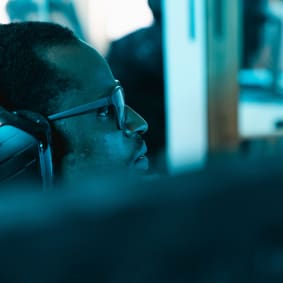Employee Rewards and Career Advisory Services
Workforce Skills
What are Workforce Skills and Why Do They Matter?
Workforce skills refer to the full collection of technical, professional and soft skills that employees inside an organization need to perform their jobs successfully and drive business outcomes. A strong workforce skills taxonomy and methodology includes both traditional skills and the underlying competencies, behaviors and abilities that influence how employees carry out their work. When leaders have consistent tools and processes in place to understand and manage workforce skills, they can lead organizations in a more agile and resilient manner.
Against a backdrop of accelerated business and workforce change, organizations can no longer afford to acquire new or emerging workforce skills in a haphazard way. Traits that were once deemed to be "future skills" are increasingly essential and needed now to future-proof organizations from trade disruptions, digital transformation, shifting weather patterns, and other complexities.
Why is Managing Workforce Skills a Challenge for Organizations?
Managing workforce skills is no easy task. Consider the existence of varied skills taxonomies and methodologies — even within the same organization — that oftentimes don’t talk to each other. What you are left with is a lack of standardization that renders it challenging for organizations to have a clear and consistent understanding of the skills their employees possess.
Many organizations also have what are known as "skills clouds” — or disconnected collections of skills data — that exist in isolation, hindering the ability to optimize skills across an organization. From the employee’s perspective, a lack of clarity on workforce skills can lead to decreased engagement or motivation and higher retention risks. If the necessary skills required to perform a role effectively are unclear, it can hinder an employee’s ability to successfully navigate roles and have a say in charting their career path.

How Aon Can Help
At Aon, we guide clients through a process of designing and implementing what is known as a workforce skills framework, which serves as a foundation that will enable organizations to identify and acquire essential skills needed for business success. Organizations must consider the cost implications for closing the skills gap — balancing and weighing the cost of finding talent externally or identifying skills that exist internally.
At its core, bringing a skills framework to life implies that the framework will be integrated with the organization’s HR processes and technology infrastructure — which can include job architecture, competency frameworks, performance ratings, career pathing and opportunities, training possibilities and psychometric assessments — to ensure long-term success.
Machine learning and analytics can accelerate the tracking and mapping of workforce skills across the organization. Today, increasingly sophisticated platforms, such as Aon’s SkillsGraph, make it easier to capture critical skills information and align it to job taxonomies for a full-picture view.
Our Workforce Skills Tools Include:
-
Future Skills Benchmarking
Using Aon’s future skills framework, we establish a baseline to identify opportunities and inform critical decisions regarding your workforce capabilities, pay structures and related risks. This framework allows us to assess the evolving skills landscape and align your organization's talent strategy with the demands of the future, ensuring that your workforce remains competitive and resilient.
-
Job Architecture Adequacy
Future-proof your job architecture by integrating it with the skills and competency framework. We ensure that your job roles are flexible, adaptable and resilient, allowing for seamless adjustments to evolving business needs. This integration enhances organizational agility, enabling swift responses to market shifts and technological advancements.
-
Job Redeployment
Through comprehensive job analysis and success profiling, we define redeployment potential and identify the 'next job' based on skills proximity. This approach not only improves productivity but also helps in identifying upskilling and reskilling needs. By aligning employee skills with available opportunities within the organization, we foster a culture of continuous learning and career advancement.
-
Skills-Based Pay
We benchmark, analyze and design the right rewards strategy based on skills and future readiness. Our approach ensures alignment with your organization's objectives, creating a workforce that is resilient to change. By aligning pay structures with skills acquisition and performance, outcomes such as motivation, engagement and retention improve.
-
Skills and Competency Framework
We can help define and structure your capability framework, which includes technical skills, functional skills and competencies that are future-ready and aligned with your business strategy. This framework serves as a blueprint for talent development, recruitment and performance management, ensuring that your workforce possesses the skills needed to thrive in a rapidly changing environment.
-
Skills Mapping Technology
With skills data sourced directly from our Radford McLagan Compensation Database, SkillsGraph extracts in-demand skills directly from an organization’s global job posting database and seamlessly maps this information with relevant job codes. This process paints a robust picture for business and HR leaders, who now have at their fingertips the ability to quickly and easily identify current and future skills critical to business success.
As a seamless integration into your Workday platform, SkillsGraph eliminates cumbersome processes and places the focus where it belongs: on strategic talent development.
-
Talent Mobility and Career Pathing
Our holistic mobility and development framework assesses and builds skills and competencies, empowering employees to navigate their career paths within your organization. We focus on continuous engagement, providing employees with a clear roadmap for growth and development. This approach fosters a culture of empowerment and retention, ensuring that your workforce is motivated and equipped for the challenges of tomorrow.
Who Do We Partner With?
We help HR leaders and workforce planning professionals to future-proof their workforce skills strategy and help them build or reimagine their skills framework so it aligns with market trends.







